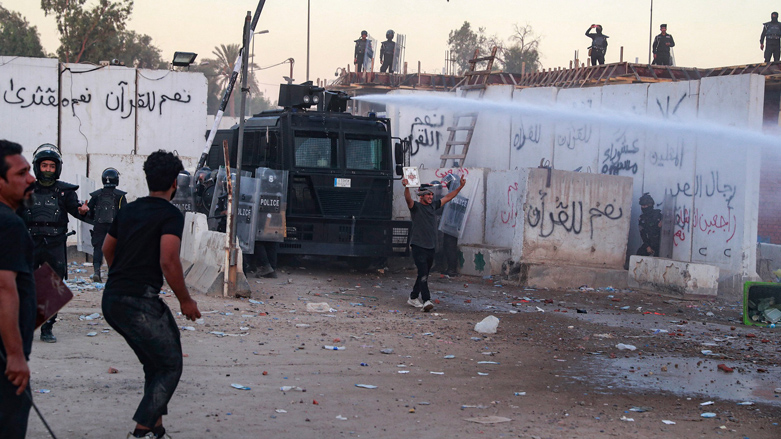Sweden's embassy in Baghdad stormed again
The embassy's staff are "safe", the Swedish foreign ministry said on Thursday.

ERBIL (Kurdistan 24) – Angered by a planned Quran burning in Sweden, protestors on early Thursday stormed the Swedish Embassy in Baghdad, where they lit a small fire to the building after breaching its premises.
This is the second time that the diplomatic post has been stormed since late June over burning a copy of the Quran, Islam's holiest book.
The renewed torch of the building comes as the Swedish authorities have greenlighted an assembly outside the Iraqi embassy in Stockholm, where the organizers are planning to burn a copy of the Quran and the Iraqi flag.
The followers of the Shiite firebrand Moqtada Al-Sadr stormed the building early Thursday and set a small fire inside the building.
The embassy's staff are "safe", the Swedish foreign ministry told AFP on Thursday.
"The Iraqi authorities are responsible for the protection of diplomatic missions and their staff", the ministry told the French media, adding the attack on its embassy "constitute[s] a serious violation of the Vienna Convention".
Iraqi riot police tried to disperse the protestors with water cannon and other members of the security forces used electric batons to chase the mob.
Iraqi Minister of Foreign Affairs Fuad Hussein held a phone call with his Swedish counterpart on Wednesday and discussed Quran burning.
While condemning attacks on religious and ethnic communities, the Swedish authorities have said on many occasions that they had allowed the June protestor, an Iraqi immigrant in Sweden, to burn a copy of the Quran under the freedom of expression pretext, a justification most in the Muslim world has vehemently rejected.
The United Nations Human Rights Council has recently condemned the burning of the holy book as a "religious hate act".
